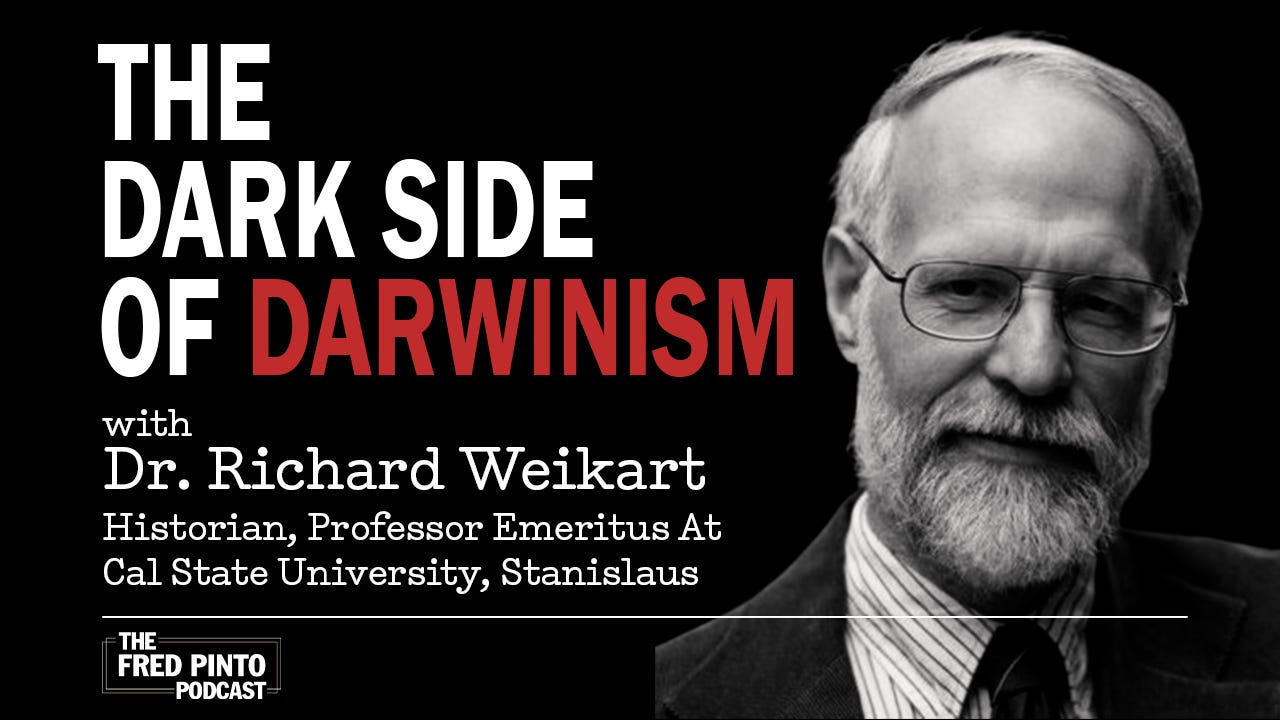Is Darwinism a Dehumanizing Philosophy? A Dive Into Evolutionary Theory With Award-winning Historian and Scholar, Dr. Richard Weikart
YouTube | Apple Podcast | Spotify | Buzzsprout | Website
Once upon a time, human beings believed in creation myths. The basic pattern was this: in the beginning, divine forces brought order to chaos, infusing the universe with meaning.
Until Charles Darwin came along and offered a different conception. Our world resulted from no such top-down design, but from the blind forces of evolution and natural selection. Survival of the fittest and natural selection – not divine intent – was the driving force of life.
With Darwin’s ideas came a new worldview. The universe was no longer seen as benevolent and orderly, but as cold, random, and purposeless.
In time, these ideas were adopted as the bedrock of a new, more scientific way of looking at human history.
But from the very start, they were also entangled with the most ruthless tendencies of human nature. Those driven to dominate and control others were instantly drawn to Darwinism: the new scientific consensus around the notion that life was just domination of the weak by the strong justified their ambitions. Since the concept of the intrinsic dignity of humans would limit their power, it could be discarded as invalid.
My guest in this episode of the podcast, Dr. Richard Weikart, has dedicated the better part of his decorated academic career to documenting the disturbing relationship between Darwinism and the theory of racism that emerged in the 19th century, culminating in the race-motivated atrocities of the 20th century.
Yet, for questioning the supremacy of Darwinism, he’s been vilified and misrepresented by mainstream academics for decades.
His work challenges us to separate Darwinism the evolutionary process, from Darwinism the philosophy, the latter of which is often used to undermine the sanctity of human life:
What I'm trying to do as an intellectual historian, is to show the impacts that ideas have actually had on society. (This includes) the way that Darwinism has impacted views about human life - that Darwinism undermines the Judeo-Christian sanctity of life ethic. (I’m not saying) that Darwinism is necessarily wrong, but that ideas do have consequences. And if they've had these kinds of negative consequences, maybe that's another reason to rethink them. Now, when I say rethink, the rethinking has to take place on other levels than historical. The rethinking has to take place on a scientific level if you're dealing with a scientific theory. So, I am asking people to sort of take another look at Darwinism, certainly. But again, I'm not saying that the things that I have shown, the historical connections that I've shown necessarily undermine Darwinism or show that it's necessarily wrong.
In this conversation, we discuss the nuances of evolutionary history, the role of ethics in human progress, and how religious and scientific ideas overlap and interact. Dr. Weikart has amassed a wealth of knowledge and some unique insights around these topics – and I hope you all enjoy it!
Fred


